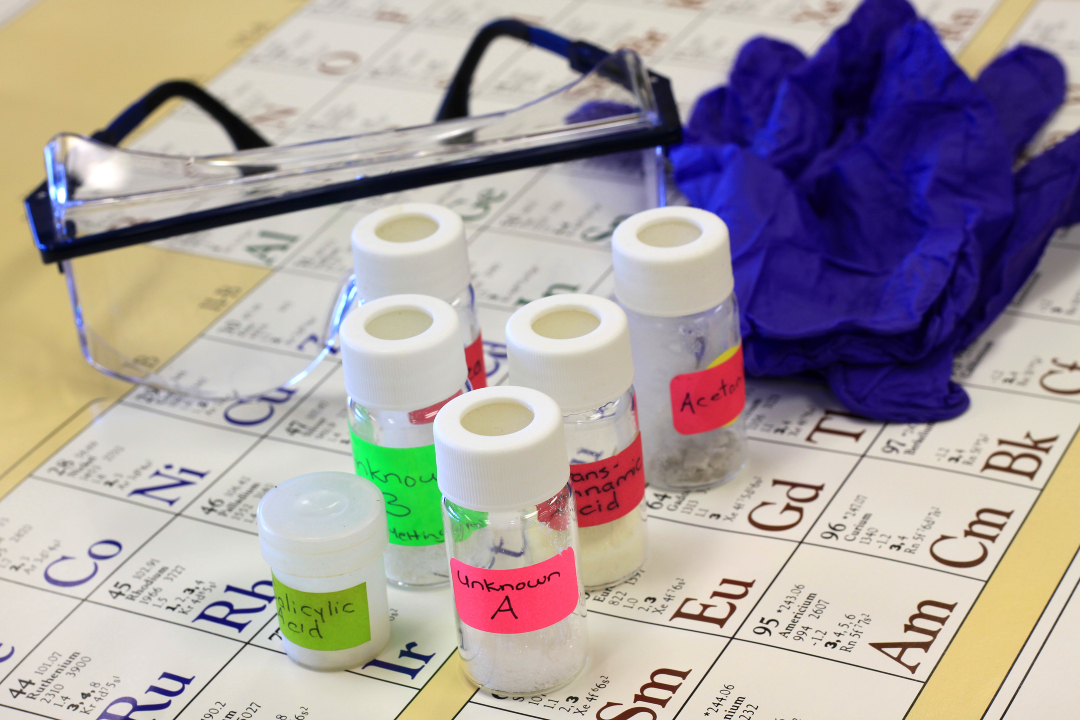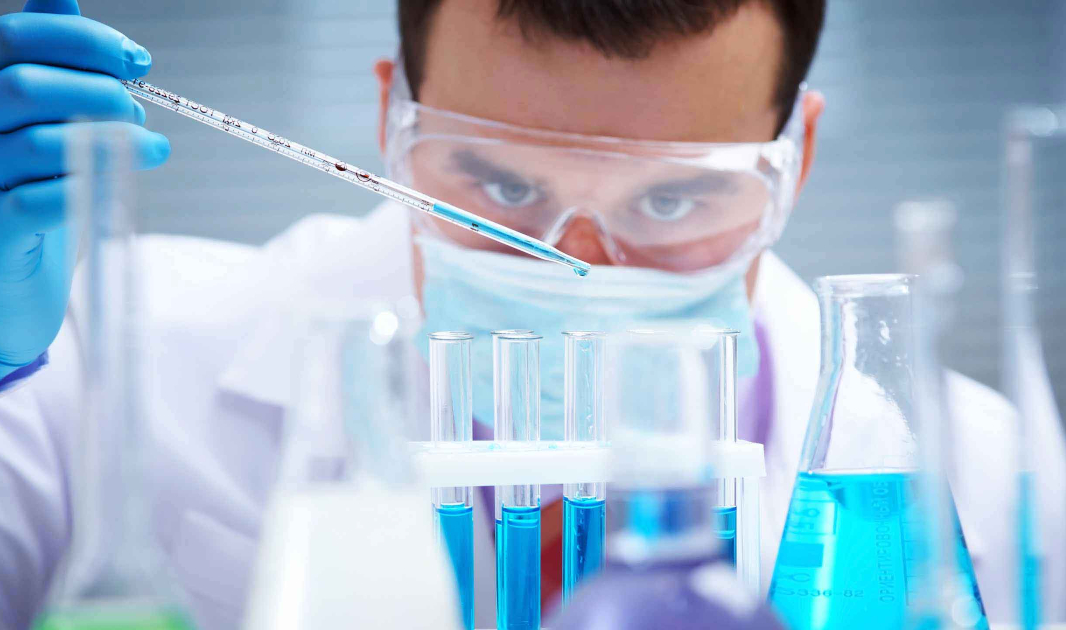There are many types of eye hazards in today’s modern research and development labs. Therefore, we should take extra precautions to ensure injuries to sight never happen. In labs, chemical splashes are the main eye hazard, followed by flying dust, particulates, glass shards, etc. A few other hazards include ultraviolet light (UVL), lasers, and thermal burns. Therefore, the issue is not when eye protection is required but what type of eyewear is appropriate when working in a laboratory.
Below we explore why do we wear goggles in a lab, what type of eye protection is appropriate for your lab work, and how Techmate can help protect your eyes with our extensive range of eye protection gear.
Why is good vision essential in the lab?
Good vision is essential for any laboratory worker looking to read reports and experiments accurately while avoiding long-term damage to their eyes from potentially hazardous materials. During experiments in particular, having a clear line of sight is crucial for taking precise readings – not only does this improve the accuracy of results and helps reduce potential errors caused by inaccurate observations due to unclear vision. By wearing protective lab goggles or glasses at all times during an experiment (and in general), you’ll be able to ensure that no damage comes to your eyes from potentially harmful substances used during laboratory work.

Types of Eye Protection for Different Situations
Many options are available when selecting the correct type of eyewear for your particular needs. Safety glasses may be sufficient for those working on basic maintenance tasks or in non-hazardous environments such as classrooms or research labs. However, if you’re dealing with more intense conditions, such as exposure to corrosive chemicals or hazardous fumes, vented safety goggles with additional face shields may be necessary.
- General safety glasses – Safety glasses have a metal or plastic frame. Also, they can be worn over prescription glasses. Many models include side shields that wrap around the sides, protecting the user from different angles.
- Chemical splash goggles – These lab goggles enclose the entire eye area, with an adjustable strap that holds them in place, like swimming goggles. Some include ventilation to prevent fogging but do not protect against fine dust or chemical splashes.
- Laser Safety Glasses – These protect against alternate light sources, lasers, and radiation, with options available depending on the wavelength and power used in the application.
- Face Shields – Visors and face shields have a single large lens mounted to an adjustable head harness or helmet to protect the face and neck. Depending on the specific hazard, different materials of varying thicknesses can make up the lens. Lab Goggles or safety glasses are worn with them.
With Evolve’s range ofprotective eyewear solutions, you’ll find everything needed to ensure optimal protection while still being comfortable enough to wear in the lab.
Why should we wear safety goggles in a lab to avoid eye injuries?
A chemical splash is the umbrella term for chemical contact in the form of liquids, mists, vapours, gases, fumes or aerosols. What are the possible consequences if someone in your lab received a chemical splash to their eyes?
Chemical properties and pH levels determine how harmful a chemical can be. A chemical splash closer to neutrality (a pH of 7) is less likely to be dangerous. On the other hand, the more acidic (less than 7) or alkaline (more than 7) the chemical is, the greater its potential severity.
Chemical splashes that are less severe often have temporary effects, including blurred vision, swollen eyelids, stinging or burning, irritation and redness, but are usually temporary if treated quickly and effectively. The effects, however, may be much more severe and long-lasting if the splash is not dealt with quickly or involves a chemical closer to either end of the pH scale. A severe chemical eye burn can result in retinal damage, glaucoma, cataracts, corneal ulcers, corneal perforations and, in extreme cases, blindness. For this reason, taking the necessary precautions, including the proper eyewear is crucial.
You might also be interested in
All the latest Evolve news, all in one place
Driven to do good
Evolve delivers laboratory design services, high quality lab supplies and chemicals, as well as specialist scientific and medical equipment.
Our international customers include major pharmaceutical companies, medical cannabis firms, hospitals, schools, universities, public laboratories and the oil and gas sectors.
If you’d like to speak to one of our experts on how Evolve can help your next science-led project, please get in touch with us today.


